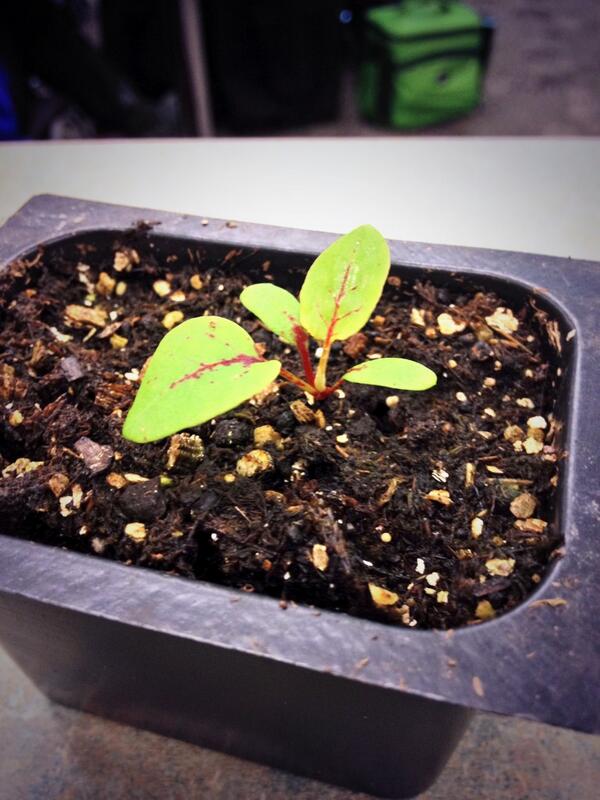One day it was winter and the next it wasn't. Just as winter was starting to become unbearable, we were hit with rising temperatures into the 50s and even very, very low 60s. It was like the universe answered all of the north's silent (and not so silent) prayers for spring. The warmth is making me even more excited to get done with my degree and enjoy a summer of growing food, working (hopefully!), and hanging out in the Twin Cities.
 |
| Sunshine and 60 degrees on campus. |
One exciting, new piece of life is that I've signed on as a member of Southeast Como's FairShare Farm! FairShare has a really neat model that allows members to pay a small, one-time fee, work a few set hours per week at the farm, and then receive a portion of every harvest. No one has their own individual plot, but all the plots are shared and rotated every year in keeping with good crop rotations. So it's somewhat like a CSA and a community farm smooshed into one. I'm just excited to be working with others who share my passion for gardening and meeting people from my neighborhood at the same time.
 |
| One of the old grain towers near my house. |
Otherwise, things are pretty normal. I'm heading home to Michigan for spring break on Saturday, leaving my roommates to have fun in the Twin Cities without me. But it'll be great to have a relaxing week of sleeping and taking care of myself. I'll also be helping out my dad who's having surgery on his knee while I'm home.
Once I get back, it's full steam ahead on seed-starting. The only thing I have going right now are perennial, native, pollinator friendly seed mixes started in some makeshift greenhouses (juice containers with holes poked in them) sitting outside. Since they don't mind the cooler temps, I've left them to generally fend for themselves with the occasional watering. I didn't want to start anything else until after spring break because I didn't want to leave newly-started seeds on their own for eight days... But I'm planning on some small space gardening at my own house as well as having things to grow at FairShare. I have some dry beans that I want to grow simply for seed-saving purposes (with the couple of beans I have, I wouldn't be able to grow enough to eat), as well growing some mini-bell peppers in pots for the ledge outside. I have several tomato varieties I'll probably offer to start for my family members as well.
The last project I have are some perennials that I grew from cuttings in plant production last semester. I have some rugosa roses, a hydrangea, a mum and a pretty crispy-looking cold-hardy hibiscus (don't know if that one has made it...). I attempted overwintering them in our cooler stairway area and once it warms up even more, I'm going to set them outside, throw on some fertilizer and see if they come back.
I'll probably have a seed-starting post up eventually, but this semester has been way more crazy than I thought. Plant genetics has been tricky and keeping up with it is requiring tons of work. But I just have to keep it up until the beginning of May...
Hope you all are enjoying the lovely spring weather, wherever you are!



.png)




